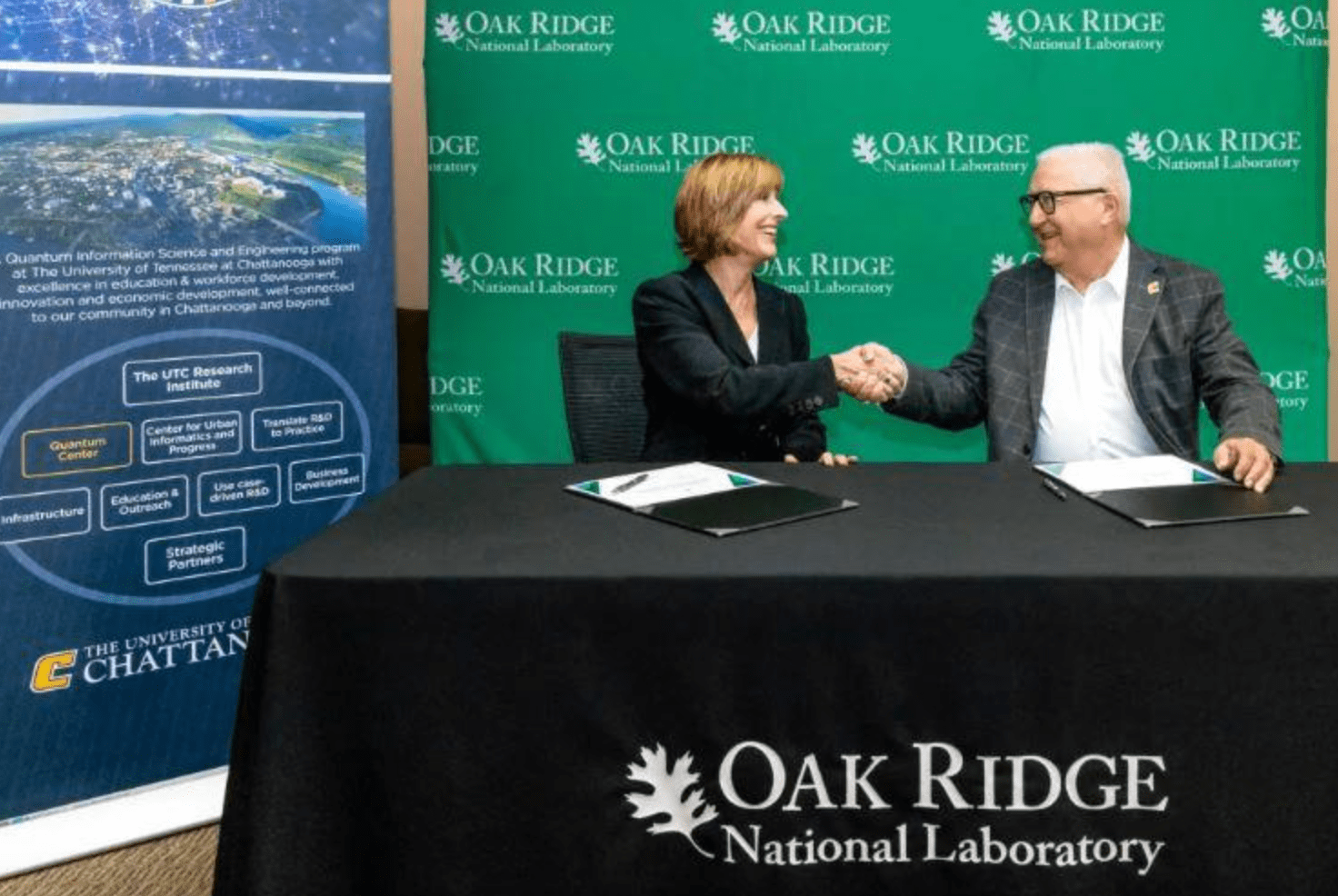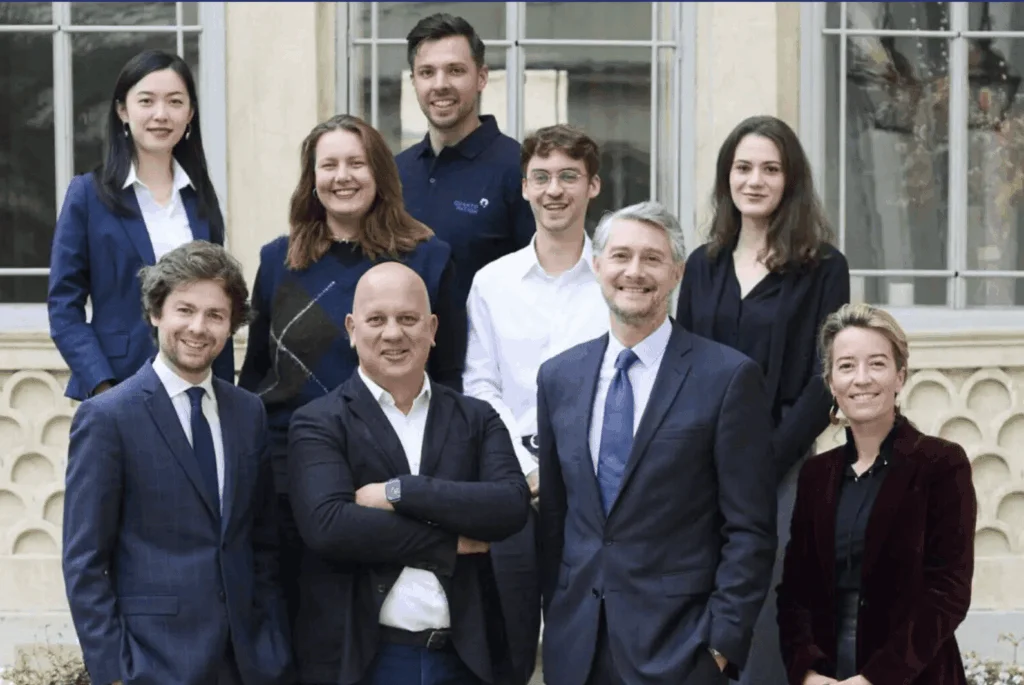Insider Brief
- The University of Tennessee at Chattanooga (UTC) and Oak Ridge National Laboratory (ORNL) have signed a memorandum of understanding to collaborate on quantum information science and engineering, focusing on areas like networking, sensing, and computing.
- UTC is establishing a Quantum Center as part of its Research Institute, aiming to advance quantum technology and education, with students benefiting from internships and projects at ORNL.
- ORNL is developing a “quantum roadmap” to create secure and efficient quantum networks, with the partnership intended to support quantum research and workforce development over the next five years.
PRESS RELEASE — The University of Tennessee at Chattanooga and the Department of Energy’s (DOE) Oak Ridge National Laboratory (ORNL) are entering into a memorandum of understanding with the intent to collaborate in efforts to research, develop, deploy and evaluate technology and analytically based solutions to challenges in the area of quantum information science and engineering, including networking, sensing, and computing.
A ceremony recognizing the signing of the agreement outlining the collaboration took place on Monday at ORNL.
“We are excited about the opportunities for our faculty to collaborate with quantum information science and engineering experts at one of the premier research labs in the world,” said UTC Vice Chancellor for Research Reinhold Mann. “As we develop the UTC QISE curriculum, our students will greatly benefit from internships and capstone projects involving collaborations with our colleagues at ORNL.”

In 2022, UTC launched an initiative in quantum information science and engineering (QISE) with a goal of establishing a program known for excellence in education, innovation and economic development enabled by quantum technology.
As a result of that initiative, UTC is now establishing a Quantum Center that is part of the University’s Research Institute. The Quantum Center is the focal point for cross-disciplinary teams performing applied research and development (R&D) and delivering an education program of value to students and those already in the workforce.
ORNL is focused on foundational quantum theory, simulation and experiment in the quantum research areas of computing, networking, sensing and materials. The national laboratory applies its expertise to address national priorities in energy, security and scientific discovery.
Over the past year, ORNL has been developing a laboratory-wide “quantum roadmap” to articulate goals and a timeline for delivery of a secure and synchronized quantum network of computers and sensors to address emerging needs of the nation’s infrastructure, specifically secure and efficient information exchange.
“A quantum-enabled future is expected to embody game-changing technologies and strategies—many that we can’t even envision today,” said Susan Hubbard, ORNL Deputy for Science and Technology. “Realizing this future will require advances and integration across several quantum science and technology fronts. This partnership recognizes each institution’s commitment to contributing to a quantum-enabled future through R&D and the development of a robust quantum workforce.”
ORNL’s quantum roadmap will require technical advances in quantum science and technology across three multidisciplinary and interconnected priority areas:
- Advanced hybrid quantum computing systems and applications
- Secure quantum networks through entangled communication
- Materials development for revolutionary quantum computing, sensing and networking
“The new collaboration between the University of Tennessee at Chattanooga and Oak Ridge National Laboratory is an exciting development, bringing together top researchers to tackle the major challenges in the quantum field,” said U.S. Rep. Chuck Fleischmann, chairman of the House Appropriations Subcommittee on Energy and Water Development. “By mentoring the next generation of quantum scientists right here in Tennessee, we are ensuring that America remains at the forefront, leading the world in these cutting-edge technologies.”
The MOU has a five-year term and is intended to deepen QISE connections between UTC and ORNL including networking, sensing and computing to demonstrate the value of quantum technology in select use cases of mutual interest. Both UTC and ORNL are committing internal funding to support pursuit of external funding for research projects.
UT-Battelle manages ORNL for the Department of Energy’s Office of Science, the single largest supporter of basic research in the physical sciences in the United States. The Office of Science is working to address some of the most pressing challenges of our time. For more information, please visit energy.gov/science.















